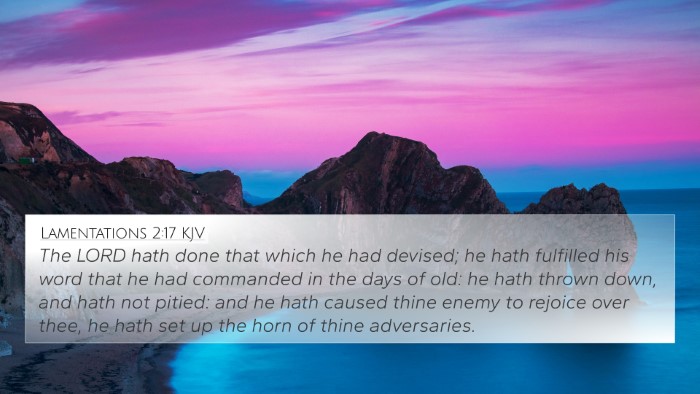Understanding Deuteronomy 28:15
The verse Deuteronomy 28:15 is a pivotal scripture within the broader context of the blessings and curses outlined in Moses' address to the Israelites. This passage serves as a warning against disobedience to God's commandments. It is essential to consider the implications of this verse not only in isolation but also in relation to other scriptures within the Bible.
The verse states: "But it shall come to pass, if you do not obey the voice of the Lord your God, to observe carefully all His commandments and His statutes which I command you today, that all these curses will come upon you and overtake you." Here, we see a clear cause-and-effect relationship between obedience to God and the consequences of disobedience.
Contextual Background
This verse is part of a larger discourse that spans Deuteronomy 28, where Moses lists the blessings for obedience (verses 1-14) and the corresponding curses for disobedience (verses 15-68). The chapter emphasizes the importance of fidelity to God's laws as a determinant of Israel's national well-being.
Thematic Insights
-
Obedience and Consequence: The directive for obedience is central to the covenant relationship between God and His people. Failure to adhere to divine instruction results in dire repercussions, as highlighted throughout the Old Testament.
-
Moral Responsibility: The passage demands a moral accountability, where individuals are called to act in accordance with God's statutes, reinforcing the theme that spiritual choices lead to tangible consequences.
-
Divine Justice: The curses listed in subsequent verses exemplify God's justice system – an assurance that disobedience will not go unchecked, echoing theological principles found throughout Scripture.
Connections Between Bible Verses
To further deepen understanding, it's beneficial to explore similar themes and cross-references found in the scriptures. The following verses resonate with Deuteronomy 28:15 through shared themes of obedience, covenant relationship, and the outcomes of moral conduct:
- Leviticus 26:14-16: The consequences of disobedience are also reiterated here, illustrating God's expectations and the repercussions of infidelity.
- James 1:22: This New Testament verse emphasizes the importance of being doers of the word, bringing the Old Testament principle into the Christian context.
- Galatians 6:7-8: The law of sowing and reaping parallels the curses of disobedience, reinforcing the principle of consequences related to our actions.
- Psalm 119:1-3: This passage praises those who walk blamelessly and keeps God’s statutes, shedding light on the blessings of obedience.
- Jeremiah 11:3: Here, the Lord calls attention to the covenant's requirements and the penalties for transgressions against it.
- Matthew 5:19: Jesus speaks to the importance of obeying and teaching God's commandments, linking the Old Testament law with New Testament teachings.
- Romans 2:6: Paul reaffirms that God will repay each person according to their deeds, further emphasizing accountability for one's actions.
Comparative Bible Verse Analysis
The idea of divine retribution for disobedience is a recurrent theme throughout the scriptures. By examining the cross-references and the intertextual connections, one can see a cohesive narrative emphasizing the importance of following God’s commands.
Points of Cross-Referencing
When studying Deuteronomy 28:15 and its related verses, one can utilize several tools for effectively understanding these connections:
- Bible Concordance: This resource can help locate specific terms and phrases, unveiling relational contexts within the Biblical text.
- Bible Cross-Reference Guide: These guides often provide insights into related verses, making it easier to draw connections across the scriptures.
- Cross-Reference Bible Study: Employing methods that ask how various scriptures illuminate each other assists in grasping theological nuances.
- Identifying Connections: One can focus on thematic exploration, facilitating understanding of concepts such as justice, obedience, and grace.
Application for Study
Through this verse, a robust framework emerges for understanding moral actions and their spiritual consequences. Readers are encouraged to reflect on how these principles apply in contemporary life, reinforcing God's unchanging nature and His desires for humanity.
As believers engage with these texts, recognizing the connections between the Old and New Testaments fosters a deeper comprehension of God’s consistent message throughout the Bible.
Conclusion
Deuteronomy 28:15 encompasses a vital message about obedience to God and the consequences that follow disobedience. Through the insights gained from various commentaries and the linked scriptures, scholars and laypeople alike can appreciate the intricate web of Biblical teachings. The methodical approach of cross-referencing enriches one's study of the Scriptures, revealing the profound unity and continuity of the Biblical narrative.













